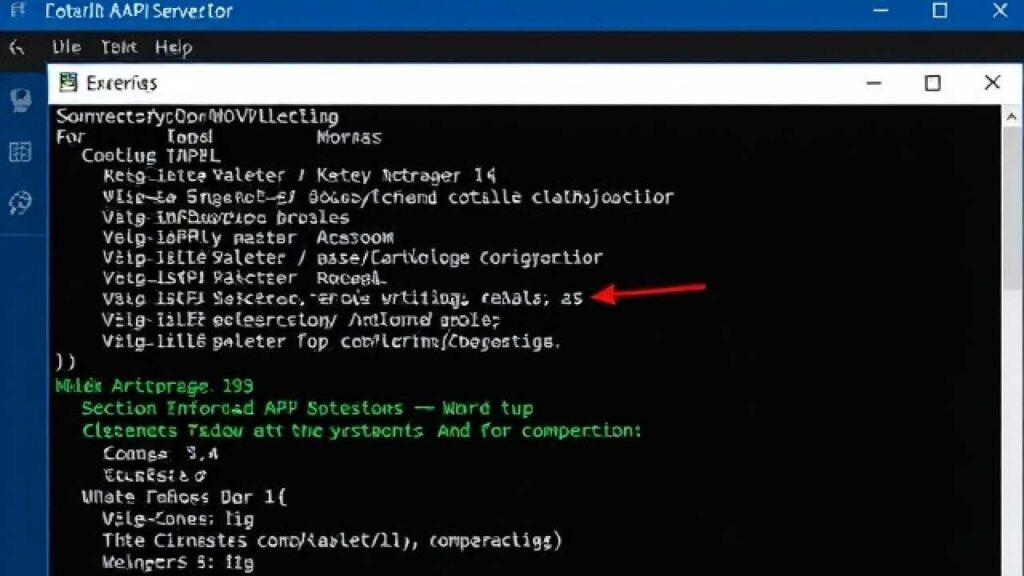Introduction
In today’s fast-paced digital landscape, seamless integration is key to unlocking business success.
That’s where the IBM Integration Bus (IIB) comes in, and more specifically, the iib_api_server.exe file.
But what exactly is iib_api_server.exe, and how does it fit into the larger IIB ecosystem? In this article, we’ll delve into the world of iib_api_server.exe by exploring its functions, security implications, best practices and more.
Understanding IBM Integration Bus
Before diving into the most common question, iib_api_server.exe What Is it? Let’s understand the context first.
Basically, IBM Integration Bus (IIB) is a middleware software that enables seamless integration across disparate applications, systems and services.
Formerly known as WebSphere Message Broker, IIB has evolved to become a robust platform for integrating data, applications, and APIs.
Iib_api_server.exe What Is It?
Shortly, the iib_api_server.exe is a crucial executable file within the IBM Integration Bus framework, which plays a pivotal role in managing API-related services by facilitating communication between applications, and ensuring secure data transmission.
In essence, iib_api_server.exe is the backbone of IIB’s API management capabilities.
Key Functions and Features
As IIB offers numerous options for a better user experience, here I’m describing some key functions and features of iib_api_server.exe, below-
API Management and Gateway Functionality
Since, the iib_api_server.exe provides robust API management capabilities by handling API requests and responses with ease.
Moreover, iib_api_server.exe also supports multiple API protocols, including REST, SOAP and others, which makes it a versatile solution for diverse API integration needs day by day.
Data Transformation and Mapping
Efficient data integration relies on seamless data transformation and mapping, where iib_api_server.exe converts data formats between applications.
Additionally, it maps data fields for effortless integration, supporting various data formats such as XML, JSON, and more.
Secure Data Encryption and Authentication
As security is paramount in data integration, it encrypts data in transit and at rest, safeguarding sensitive information from unauthorized access.
Furthermore, it authenticates API requests, which supports industry-standard encryption protocols, providing an additional layer of security.
Message Queue Management and Enterprise Service Bus Functionality
This file efficiently manages message queues, ensuring rapid data processing and minimizing latency.
However, its enterprise service bus functionality integrates applications seamlessly, such as MQ and JMS.
Integration with Various Protocols and Data Formats
Integration with multiple protocols, including HTTP, FTP, and others by providing flexibility in data integration, it additionally supports various data formats such as- CSV, Excel and more.
Security Implications and Best Practices
Since, these robust security features ensure that iib_api_server.exe provides a secure and reliable integration solution for your organization’s data and applications, let’s break down its significant capabilities-
Data Protection
It Encrypts data in transit and at rest to prevent unauthorized access. It also uses secure protocols like HTTPS to safeguard data transmission.
Access Control
Verifies API requests and user identities to ensure authorized access to restrict sensitive data based on user roles.
Maintenance and Updates
This service ensures that it will always stay up-to-date with the latest security patches and protocols.
Monitoring and Alerts
However, it can track system logs and performance metrics in real time to share instant notifications of potential security issues or system disruptions.
Why To Choose iib_api_server.exe?
Some notable reasons behind it, effectively indicate every answer about it, such as-
Seamless API Integration and Management
It connects disparate applications through APIs which manages API requests and responses efficiently by simplifying API integration and management.
Enhanced Data Security and Compliance
Encrypts data in transit and at rest for maximum security, which authenticates API requests and users.
Improved System Integration and Architecture
Integrates applications and systems seamlessly to provide enterprise service bus functionality for efficient data exchange.
Increased Efficiency and Productivity
Automates data processing and integration tasks that reduce manual errors and processing time.
Scalability and Flexibility
Supports multiple protocols and data formats with various applications and systems that adapt to change business needs and technology landscapes.
Troubleshooting Common Issues
As users are facing some common issues with iib_api_server.exe, their team is still working on these phases to make it more efficient, including-
- High CPU usage
- Memory leaks
- Sudden crashes
- Error logs and debugging
Performance optimization techniques
Configure Tuning and Resource Allocation
Optimize iib_api_server.exe’s performance by configuring tuning and resource allocation, adjusting settings to match specific requirements, ensuring sufficient CPU, memory and other resources.
Implement Load Balancing and Caching
Distribute workload efficiently with load balancing and caching.
Utilize Parallel Processing and Multi-Threading
Leverage parallel processing and multi-threading to process multiple requests simultaneously to improve processing speed and efficiency.
Monitor System Performance and Adjust
Tracks metrics to identify potential bottlenecks to adjust configuration settings and allocation accordingly.
API Management with iib_api_server.exe
- Handles API requests and responses.
- Provides secure API access and authentication.
- Authenticates API requests and users.
- Supports industry-standard encryption protocols.
- Monitors API performance and usage.
- Provides real-time analytics and insights.
- Manages API development, testing, and deployment.
- Supports API versioning and retirement.
Data Integration And Transformation
Seamless Data Integration
Enables seamless data integration, connecting disparate applications and systems.
Data Mapping and Transformation
Converts data formats between applications, ensuring compatibility and accuracy.
Data Validation and Quality Control
Validates data for accuracy and consistency, ensuring data quality and integrity to prevent errors, inconsistencies and data corruption.
Data Warehousing and Business Intelligence
Integrates data for business intelligence and analytics, supporting data warehousing and reporting.
System Integration and Architecture
The facilitates of seamless system integration and architecture of iib_api_server.exe, enables organizations to connect disparate applications and systems to streamlined, efficient data exchange.
However, the system architecture and design capabilities provide enterprise service bus functionality to promote flexibility, adaptability and reusability.
Additionally, iib_api_server.exe integrates cloud-based applications and services with enhanced data exchange efficiency to reduce complexity and costs.
Safety Procedures
As per iib_api_server.exe’s user safety protocol or procedure, it follows IBM’s security guidelines and Best Practices, such as-
- Implement robust access controls
- Regularly update and patch iib_api_server.exe
- Monitor system logs for security threats
- Configure iib_api_server.exe securely
- Deploy in a secure environment
- Limit exposure to unauthorized access
- Encrypt sensitive data
- Use industry-standard encryption protocols
- Protect data at rest and in transit
- Authenticate users and API requests
- Authorize access to sensitive data
- Implement role-based access control
Future Prospects
According to its progress, in the future, as IBM continues to innovate and expand its integration offerings, iib_api_server.exe will surely play a critical role in numerous projects like- Cloud-Based Integration, Internet of Things (IoT) Integration, Artificial Intelligence and Machine Learning.
Conclusion
I hope you guys get every answer about “iib_api_server.exe What Is?” Right.
But in the final words, I must mention, this business executable file is a vital component of IIB, that enables seamless API management, data integration and system integration.
By understanding its functions, security implications and best practices, organizations can unlock the full potential of iib_api_server.exe and drive business success.
FAQ:
What is the role of iib_api_server.exe in IBM Integration Bus?
The iib_api_server.exe file plays a critical role in IBM Integration Bus by managing API-related services. It ensures secure communication between different applications and facilitates seamless API integration, supporting multiple API protocols like REST and SOAP.
How does iib_api_server.exe ensure data security?
Iib_api_server.exe secures data by encrypting it both in transit and at rest. It uses industry-standard encryption protocols like HTTPS to protect sensitive information from unauthorized access and ensures authentication of API requests for added security.
What are the key features of iib_api_server.exe?
Key features of iib_api_server.exe include robust API management, data transformation and mapping, integration with various protocols and data formats, secure data encryption, and enterprise service bus functionality for system integration.
Can iib_api_server.exe handle multiple API protocols?
Yes, iib_api_server.exe supports a variety of API protocols including REST, SOAP, and others. This versatility allows it to integrate diverse systems and applications effectively, making it a valuable tool for API management.
What are some common issues with iib_api_server.exe, and how can they be fixed?
Common issues with iib_api_server.exe include high CPU usage, memory leaks, and system crashes. These can be addressed by optimizing resource allocation, utilizing load balancing and caching, implementing parallel processing, and monitoring system performance for potential bottlenecks.







